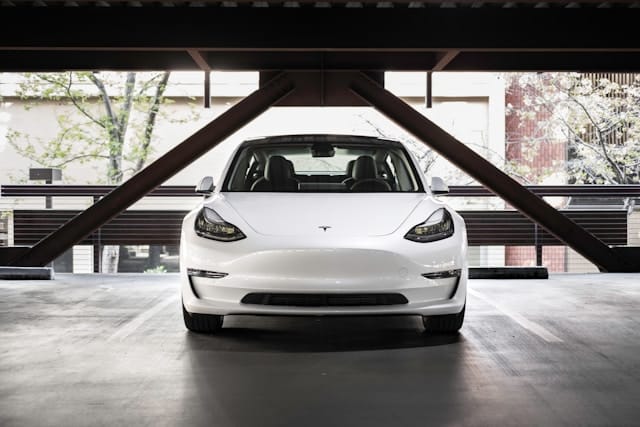Can You Enhance the Charging Speed of an EV Like the Nissan LEAF with a Home Fast-Charger Installation?

When we talk about Electric Vehicles (EVs), a crucial element that inevitably comes to the fore is the charging speed. EV owners, especially those with popular models like the Nissan LEAF, often wonder if they can enhance the charging speed of their cars at home. Today, we will shed light on whether a home fast-charger installation can accomplish this feat. Remember, this is not about which charger to buy at the bestpricegradekey, but about understanding the concept of charging at home using a fast charger.
Understanding the Basics of EV Charging
Before diving into the specifics of fast home charging, it’s essential to understand the basics of EV charging. The three main levels of EV charging – Level 1, Level 2, and DC Fast Charging (DCFC) – offer different charging speeds. The charging speed depends on the charger’s power output, which is measured in kilowatts (kW).
A lire aussi : What’s the Best Way to Remove Old Window Tint Without Damaging a Ford Explorer’s Rear Defroster?
Level 1 charging uses a standard 120-volt household outlet, providing about 2 to 5 miles of range per hour of charging. Level 2 charging requires a 240-volt source, like the type used for heavy-duty appliances. It offers about 10 to 60 miles of range per hour of charging. DCFC, also known as the Level 3 charging, is the fastest option, providing 60 to 100 miles of range in just 20 minutes of charging.
However, installing a Level 3 charger at home is not feasible due to its high costs and power requirements. Thus, for home use, Level 2 chargers are the most practical and efficient option.
Lire également : How to Choose the Right Performance Coilover Kit for a Mazda RX-8 Tuned for Street and Track Use?
The Role of the Charger Model Code
The modelcode of the charger plays a significant role in determining the charging speed of an EV. Different chargers come with different capabilities and features. Some chargers are specifically designed for certain car models and can enhance their charging efficiency.
For instance, Nissan LEAF, one of the best-selling EV models, recommends using a home charging dock with a model code that is compatible with its onboard charger. Doing so will ensure optimal charging speed. It is, therefore, crucial to check the model code of the charger before purchasing, to ensure it is compatible with your vehicle.
Charging Your Nissan LEAF at Home
When it comes to charging the Nissan LEAF at home, the brand itself recommends a Level 2 home charger. The LEAF comes with a 6.6 kW onboard charger for Level 2 charging, which can fully charge the car in about 6 hours. This is quite a feasible option for overnight charging.
However, if you wish to enhance this charging speed, getting a more powerful Level 2 charger is an option. Some Level 2 chargers offer up to 19.2 kW power output, which can significantly reduce the charging time. But remember, unless your LEAF has a bestpriceversionkey upgrade that supports a 19.2 kW charging rate, a more powerful charger won’t speed up the process.
Fast Home Chargers for Other EV Models
While discussing home fast-chargers, it’s worth mentioning the Tesla home charging solution. The Tesla Wall Connector, a Level 2 charger, offers up to 44 miles of range per hour of charging depending on the model and battery size. This charging speed is significantly higher than most Level 2 chargers in the market. However, it is crucial to remember the pricedisclaimer, which hints that the actual charging speed can vary depending on several factors like the charger’s power supply capability, car’s acceptance rate, and more.
For other EV models, the charging speed with a home fast charger will depend on the car’s onboard charging capability. For this reason, it’s necessary to check your car’s maximum charging rate before investing in a home fast charger.
In A Nutshell
In essence, enhancing the charging speed of your Nissan LEAF or any other EV at home could be possible with the right home fast-charger installation. However, this is primarily constrained by the vehicle’s onboard charging capability. Therefore, before making any decision, it’s crucial to verify the charger’s compatibility with your specific car model, considering its modelcode and modelprice. Only then will you be able to make an informed decision about whether investing in a fast home charging installation will yield the results you desire.
Remember, the goal isn’t to get a charger with the highest output, but the one that’s optimally compatible with your EV. After all, a charger is only as good as the car it’s charging!
Analysing and Choosing the Right Home Charger
Choosing the right charger for your Nissan LEAF or any other EV requires a detailed analysis that goes beyond the bestpricegradekey. It is a process that demands understanding your vehicle’s onboard charging capability, and how it syncs with the power output of the available chargers.
EV owners should consider the bestpriceversionkey of the charger, not just the pricing. This is because a high-priced charger with a high power output won’t necessarily enhance the charging speed if the vehicle’s onboard charger doesn’t support that rate. For example, the Nissan LEAF’s onboard charger supports up to 6.6 kW for Level 2 charging. Installing a Level 2 charger with up to 19.2 kW power output won’t make a difference unless the LEAF is upgraded to support such a charging rate.
Moreover, EV owners should also consider the charger’s modelcode. For instance, Nissan recommends using a home charging dock with a modelcode that is compatible with the LEAF’s onboard charger. Such compatibility ensures optimal charging speed, which could be faster than using a generic home charger.
Other factors, like the pricedisclaimer, also come into play. This is particularly important for those considering Level 2 home chargers with high power output, like the Tesla Wall Connector. This connector can deliver up to 44 miles of range per hour of charging, but the actual charging speed can vary depending on the power supply capability, the car’s acceptance rate, among other factors.
Ultimately, the choice of home charger should be based on the specific needs of the EV owner. Charging at home is generally done overnight, so a charger that can fully charge the vehicle within this timeframe would be ideal.
In Conclusion
The speed of charging an EV like the Nissan LEAF at home can indeed be enhanced with the correct home fast-charger installation. However, this is largely dependent on the vehicle’s onboard charging capability and the compatibility of the charger with the car’s modelcode.
The bestpriceversionkey of the charger is also a crucial factor to be taken into account. A higher-priced charger with a high power output may not necessarily improve the charging speed unless the vehicle is capable of supporting that rate.
While choosing a home charger, consider other factors, such as the pricedisclaimer, which indicates that the actual charging speed can vary based on certain factors, like the charger’s power supply capability and the car’s acceptance rate.
Finally, remember that charging speed is only one aspect of owning an EV. The goal is to choose a charger that is optimally compatible with your EV, ensuring efficient and convenient charging. After all, a charger is only as good as the car it’s charging! Therefore, be meticulous and informed in your choice, without focusing solely on the fastest charging option or the lowest modelprice. The right fast home charging installation can provide convenience, efficiency, and reliability, making your EV experience even more enjoyable.
